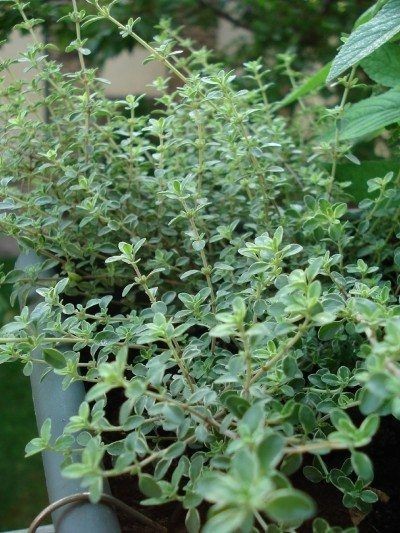
23 Oct Thyme
Thyme is a plant with many properties that today we often use it dried and as a seasoning in food. From time immemorial thyme with its many healing properties has had a special place among people of different ages.
Thyme is not only one of the most popular spices in today’s cuisine, its use as a healing medicine and health guarantee has a very long history. In ancient Rome, this substance was used to prevent poisoning, and if someone was poisoned, thyme was poured into his bath water to prevent the harmful effects of poisoning. At a time when refrigerators were not available and food was difficult to store, thyme was used in cooking to reduce the destructive effects of rotten meat and to prevent diseases caused by unhealthy foods. Before the new antibiotics came on the market, thyme oil was used to treat wounds. You may have used this herb before without realizing it. Thymol, the most active ingredient in thyme, has been used in the preparation of old Listerine mouthwashes and topical ointments such as VapoRub vicks due to its antibacterial and antifungal properties. The fact that these brands of old but not very natural products used thymol as a key ingredient in their composition confirms the undeniable medicinal properties of this herb. In the continuation of this article, we will provide you with more information about this amazing and extraordinary plant, which is easily used in your daily life and has a great impact on your health. Thyme in general has a great effect on improving the condition of the immune system, respiratory system, gastrointestinal tract, nervous system and other parts of the body. When it comes to health, this plant acts like a powerful engine room.
1. Thyme is effective in relieving sore throat
2. Lowers blood pressure and cholesterol
3. Prevents food poisoning
4. It makes you feel good
5. It has anti-cancer properties
6. Thyme is a natural treatment for bronchitis
Thyme is a plant belonging to the Lamiaceae family. This plant belongs to the genus Mint and the genus Oregano. The main composition of thyme extract oil is thymol, which has given it antiseptic properties. For this reason, thyme oil is commonly used in mouthwashes and toothpastes. This oil kills germs and infections in the mouth and protects the teeth against plaque and decay. Thymol also kills fungi and is used commercially in the preparation of hand sanitizers and antifungal creams.
In addition to carrocrol, thyme contains a variety of flavonoids, including apigenin, naringenin, luteolin, and thymonin. These flavonoids increase the antioxidant power of this plant



No Comments